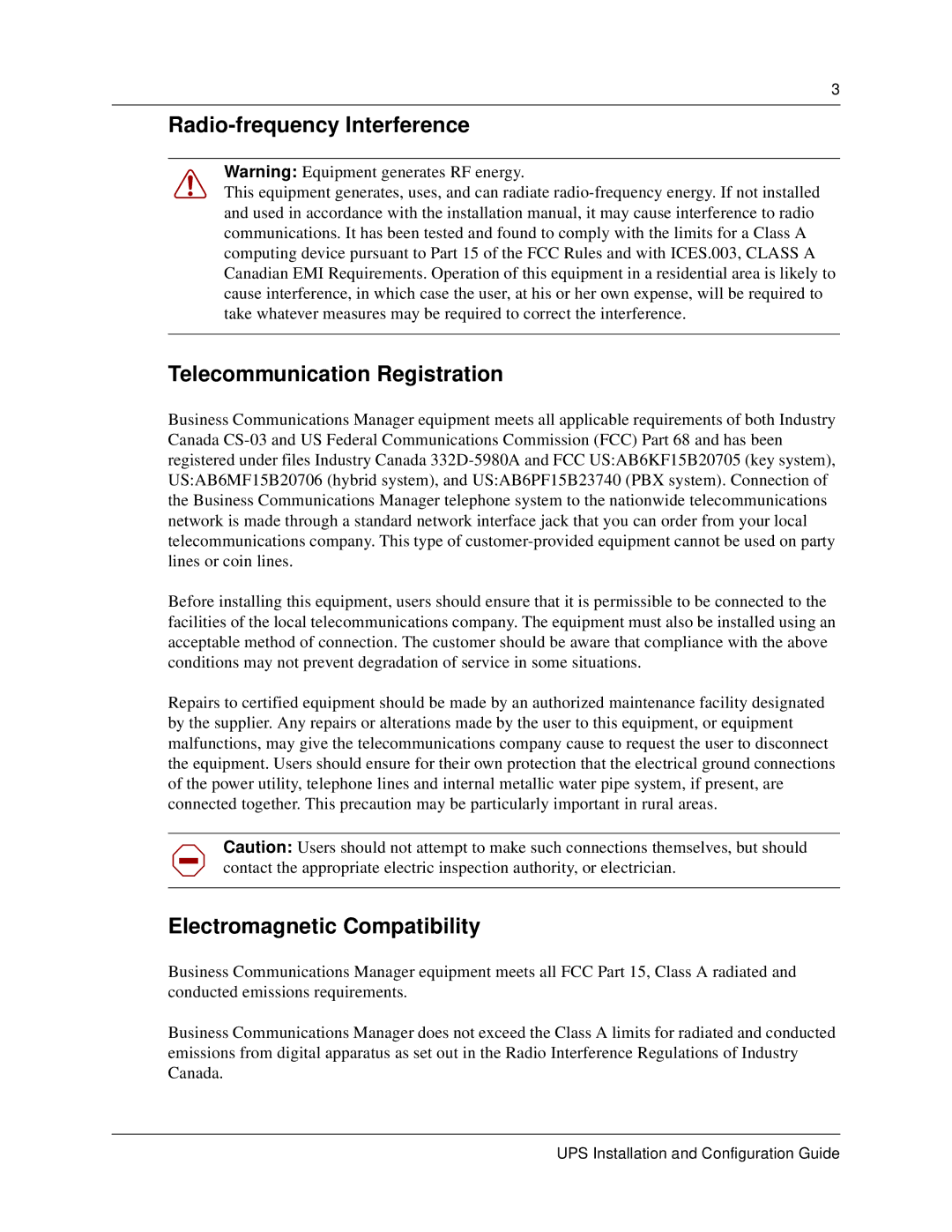
3
Radio-frequency Interference
Warning: Equipment generates RF energy.
This equipment generates, uses, and can radiate
Telecommunication Registration
Business Communications Manager equipment meets all applicable requirements of both Industry Canada
Before installing this equipment, users should ensure that it is permissible to be connected to the facilities of the local telecommunications company. The equipment must also be installed using an acceptable method of connection. The customer should be aware that compliance with the above conditions may not prevent degradation of service in some situations.
Repairs to certified equipment should be made by an authorized maintenance facility designated by the supplier. Any repairs or alterations made by the user to this equipment, or equipment malfunctions, may give the telecommunications company cause to request the user to disconnect the equipment. Users should ensure for their own protection that the electrical ground connections of the power utility, telephone lines and internal metallic water pipe system, if present, are connected together. This precaution may be particularly important in rural areas.
Caution: Users should not attempt to make such connections themselves, but should contact the appropriate electric inspection authority, or electrician.
Electromagnetic Compatibility
Business Communications Manager equipment meets all FCC Part 15, Class A radiated and conducted emissions requirements.
Business Communications Manager does not exceed the Class A limits for radiated and conducted emissions from digital apparatus as set out in the Radio Interference Regulations of Industry Canada.
UPS Installation and Configuration Guide
